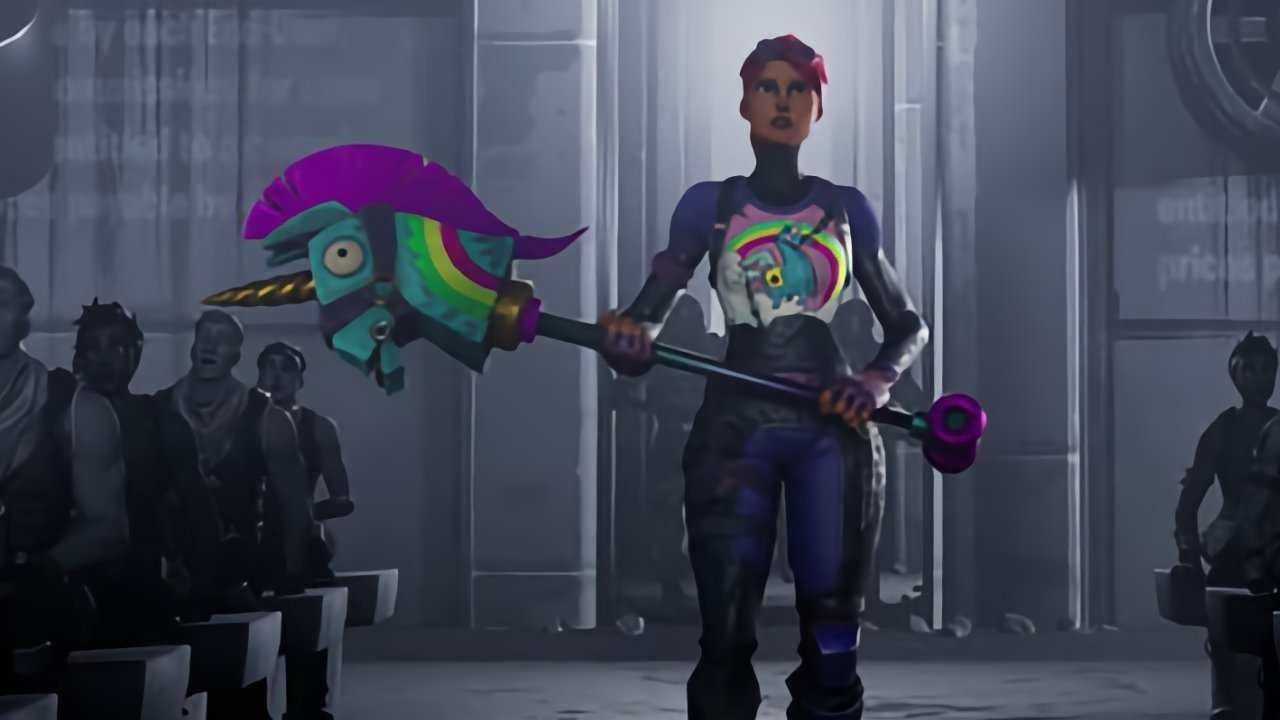Epic Games will be paying a record-setting $520 million to settle a pair of FTC allegations concerning child privacy violations and tricking players of "Fortnite" into making purchases.
The total of $520 million in settlements will put to an end two civil complaints from the Federal Trade Commission. The complaints centered around the privacy of younger "Fortnite" players, as well as how Epic gets users to pay for in-game goods.
A record $275 million civil penalty will be paid out over alleged Children's Online Privacy Protection Act (COPPA) violations, under claims Epic collected the personal information of players under the age of 13, without notifying parents or securing consent, reports the Wall Street Journal.
Furthermore, the lawsuit alleges Epic illegally enabled real-time voice and text chat between the under-13s and others in the game by default. By connecting them with strangers, the FTC says some were "bullied, threatened, harassed and exposed to dangerous and psychologically traumatizing issues such as suicide."
The settlement will be the largest assessed by the FTC in the enforcement of COPPA. In settling, Epic didn't admit nor deny any of the FTC's allegations about the federal privacy law violations.
Dark patterns
The other settlement has Epic agreeing to pay $245 million in consumer refunds over its attempts to sell in-game items and perks, specifically in using so-called dark patterns. These are characterized as attempts to trap customers by making it hard to cancel paid services, among other techniques.
The settlement is also a record-setter, with it being the highest the FTC has achieved over dark pattern usage.
The FTC alleged Epic drive the unintended purchases of outfits and dance moves, partly by the use of inconsistent and difficult to understand button configurations. "These tactics led to hundreds of millions of dollars in unauthorized charges for consumers," said the FTC.
There were also claims Epic made it difficult to find cancellation and refund features, while also locking the accounts of customers who disputed charges through credit card companies. Epic also warned users they could be banned for life if future charges were disputed.
The FTC is setting up a website where customers who feel they were unfairly charged could request refunds. However, the FTC warns it could take months for the claims to process.
Along with the settlements, Epic also has to make changes to "Fortnite" to protect users, and to start a privacy program to deal with problems alleged in the FTC complaints. Regular independent audits are also required.
The FTC settlements are far from the only legal activity Epic Games is involved in. Its major lawsuit against Apple over the App Store is still rolling through the appeals process.
 Malcolm Owen
Malcolm Owen







-m.jpg)






 Christine McKee
Christine McKee
 Marko Zivkovic
Marko Zivkovic
 Mike Wuerthele
Mike Wuerthele

 Amber Neely
Amber Neely
 Sponsored Content
Sponsored Content
 Wesley Hilliard
Wesley Hilliard










18 Comments
Disgusting behavior
And they want to run their own app store on Apple devices. How does this not feed into that
Welcome to the upcoming alternate App Store wild west Europeans.
Well, well, well, at least now we know why that scumbag Tim Sweeney wanted to bypass Apple’s payment system so bad. And he wants to run his own app store too? I wonder why. I would think this gives Apple the smoking gun to permanently ban Epic Games from the App Store too.
I would see this more in the context of Tencent, practically owning Epic. Apart from owning WeChat, Tencent is the world’s biggest owner of gaming studios. They basically own gaming on a global level. And with such ethics, this looks very “promising” regarding manipulation and exploitation of our younger generation. They fact that Sweeney apparently is not opposing at all to this, in my eyes speaks volumes about the guy’s character and values.
it should be at least a billion dollars.